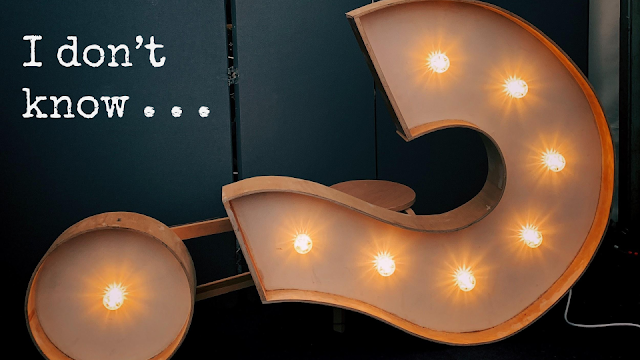What Words Connect to Your Philosophy of Teaching and Learning?
Share your words in this Padlet.
I have never believed there is a single path that leads to great teaching and learning experiences. There are just too many different types of learners for me to ever say that there is only one best to engage all of them. This is why the best educators are always taking risks and trying different new things to engage all learners. It's ok to take a risk.
“When you take risks you learn that there will be times when you succeed and there will be times when you fail, and both are equally important.” - Ellen DeGeneres
I am lucky enough to work with both teachers and students daily. This has helped me build and rebuild a mindset connected to instructional coaching. I am not close to perfect, but I am always learning. When people ask me about my instructional coaching mindset, I always start with the word why.
My mindset is built around questions connected to exploring why I do what I do! Why we do what we do!
For me, there are 4 stages of understanding why I do what I do to support teachers and learners.
Stage 1: What is our purpose? If we don't know why we are doing something, why are we doing it?
Stage 2: How will we engage learners? What pedagogical strategies will we use to support the learning process?
Stage 3.:How will our content help students develop essentials skills connected to collaboration, communication, critical thinking, and creativity?
Stage 4: How will both the teacher and the students know if they've learned? What assessments strategies are part of our learning process?
These stages are all part of my mindset of why. I believe this is a mindset that will keep us moving forward, keep us innovating.
I am going to dedicated the rest of this post to some of the resources that have contributed to my mindset of why and the words that have influenced me as a teacher and a learner.
If you are interested in exploring or building your why, I think these two resources are a great place to start.
What courses, resources, ideas or books do you think are essential to help build an Instructional Coach's Mindset?
I am not telling you that your mindset needs to be this way, but I do believe that all coaches need to develop a mindset. Your mindset will probably change and evolve over time. Mine has and I hope it will continue to grow. #GrowthMindset
I am going to dedicated the rest of this post to some of the resources that have contributed to my mindset of why and the words that have influenced me as a teacher and a learner.
If you are interested in exploring or building your why, I think these two resources are a great place to start.
What Are Your Teaching Fundamentals? (Edutopia Article)
Here are some of the books connected to instructional coaching that have helped me develop my ever-evolving mindset connected to teaching and learning.
- The Growth Mindset Coach
- The Impact Cycle: What Instructional Coaches Should Do to Foster Powerful Improvements in Teaching
- The Reflection Guide to The Impact Cycle
- Better Conversations: Coaching Ourselves and Each Other to Be More Credible, Caring, and Connected
- From Staff Room to Classroom: A Guide for Planning and Coaching Professional Development
- Learning First, Technology Second
- The ISTE Standards for Educators might be a great starting point to help teachers focus on essential skills that can be supported by EdTech.
- The ISTE Standards for Coaches is a great place to start building your coaching mindset.
- The ISTE Standards for Students can help planning from the student perspective.
- The 7 Habits of Highly Effective Teachers Who Use Technology is another resource to explore EdTech in the classroom.
- If you are a Google district I would consider using the Google Training Courses as part of the course plan. These are well put together and focus on skills before the tools.
If all of that wasn't quite enough, here is one more collection of links. I hope there is something here that you can connect to your mindset.
- Skills Connected to the 4 Cs (Collaboration, Communication, Critical Thinking, Creativity.)
- Teaching and Learning Book Recommendations (Great educational books organized by topics.)
- Student-Centered Learning (Less us, more them!)
- Formative Assessment (Quick formative tools are a great way to hook educators)
- Coaching Pedagogy (10 Tips for Instructional Coaches)
- Edutopia Leadership Resources (Resources to support teachers as leaders)
- 12 Great Hashtags All Educators Should Be Exploring
- Innovative Educational Organizations to Follow on Twitter
- 25 Innovative Educators to Follow on Twitter
My final thought about what drives me to be who I am!
Questions Are More Important Than Answers
Of Course, Our Kids Already Know This!
What courses, resources, ideas or books do you think are essential to help build an Instructional Coach's Mindset?








.png)
